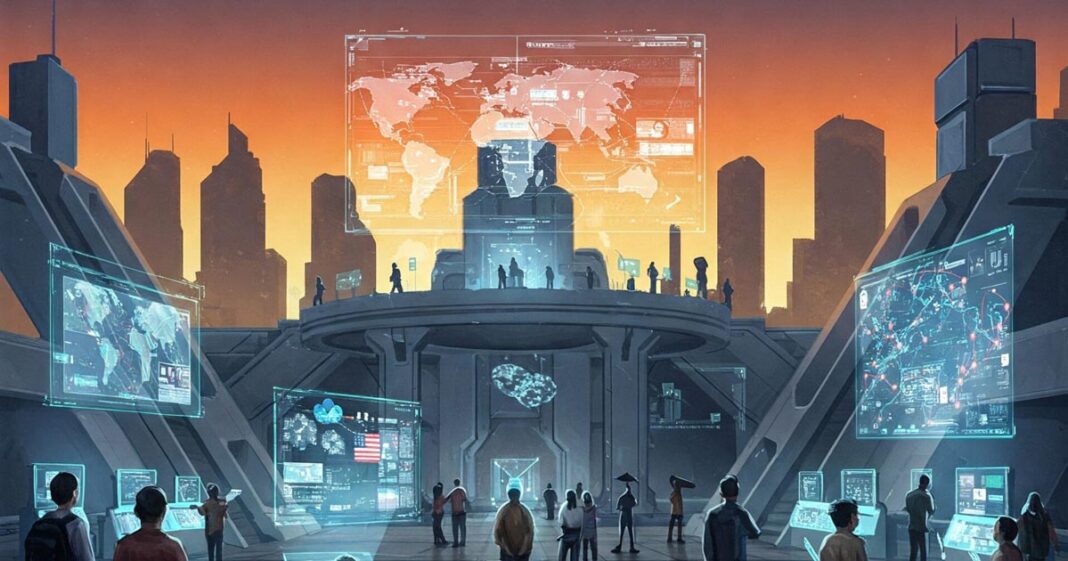
Introduction
Democracy, long considered the gold standard of governance, faces unprecedented challenges in the 21st century. While it remains the dominant political system worldwide, rising authoritarianism, political polarization, and misinformation threaten its stability. At the same time, technological advancements and global cooperation present new opportunities to strengthen democratic institutions. What lies ahead for democracy in an era of rapid change?
The Current State of Democracy
While many countries continue to uphold democratic values, recent years have seen a decline in democratic governance. According to **Freedom House**, global democracy has been in decline for over a decade, with more nations experiencing democratic backsliding than progress.
Signs of Democratic Decline:
– Erosion of Free Press: Independent journalism is under attack in many nations, limiting transparency.
– Judicial and Institutional Weakening: In some democracies, executive branches are consolidating power, undermining checks and balances.
– Election Manipulation: Gerrymandering, voter suppression, and misinformation campaigns threaten electoral integrity.
Major Challenges Facing Democracy
1. The Rise of Authoritarianism
Countries like Russia, China, and Turkey have strengthened centralized rule, suppressing dissent and restricting freedoms. Even in established democracies, strongman politics and executive overreach raise concerns about democratic erosion.
2. Political Polarization and Social Divisions
Hyper-partisanship has made political compromise difficult, leading to legislative gridlock and public distrust in government. Social media-driven echo chambers further deepen these divisions, making it harder for societies to find common ground.
3. The Threat of Disinformation and Misinformation
The digital age has made it easier to spread false narratives, undermining public trust in democratic institutions. Foreign interference in elections and deepfake technology pose growing threats to fair political discourse.
4. Economic Inequality and Public Discontent
Rising economic disparities fuel dissatisfaction with democratic governments, leading to protests and increasing support for populist leaders who promise radical change.
Opportunities for Strengthening Democracy
Despite these challenges, democracy can evolve and adapt. Several strategies offer hope for its future:
1. Leveraging Technology for Good
– E-Governance and Transparency: Digital platforms can increase citizen engagement and government accountability.
– AI and Fact-Checking: Artificial intelligence can help detect and counter misinformation in real time.
– Blockchain Voting: Secure digital voting systems could improve electoral transparency and accessibility.
2. Strengthening Civic Education
Educating citizens about democratic values, critical thinking, and media literacy can help combat misinformation and promote informed decision-making.
3. Reforming Electoral Systems
– Ranked-choice voting could reduce polarization by encouraging candidates to appeal to a broader voter base.
– Campaign finance reforms can limit the influence of money in politics, ensuring fairer elections.
4. Global Cooperation and Democratic Alliances
International organizations like the United Nations, European Union, and G7 can work together to promote democratic governance and hold authoritarian regimes accountable.
The Path Forward
The future of democracy depends on the willingness of governments, institutions, and citizens to address its weaknesses while embracing innovation. While challenges remain, democracy’s core principles—freedom, equality, and representation—still offer the best path toward a just and inclusive society.
Conclusion
Democracy is at a crossroads. The coming decades will determine whether it can withstand growing pressures or give way to alternative governance models. The key question remains: Will democracy adapt to the challenges of the 21st century, or will authoritarianism reshape global politics?





